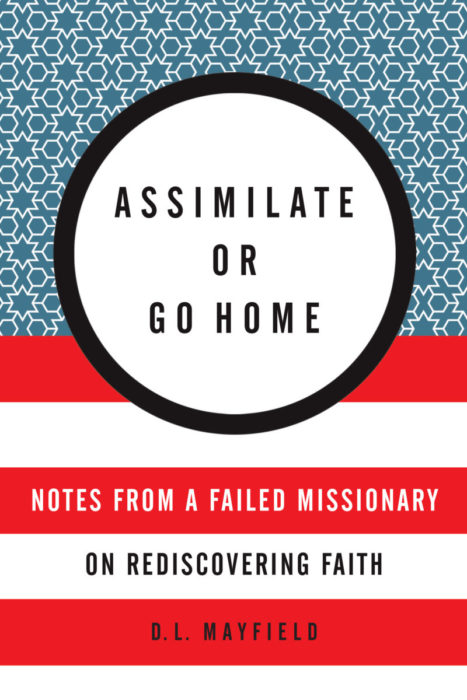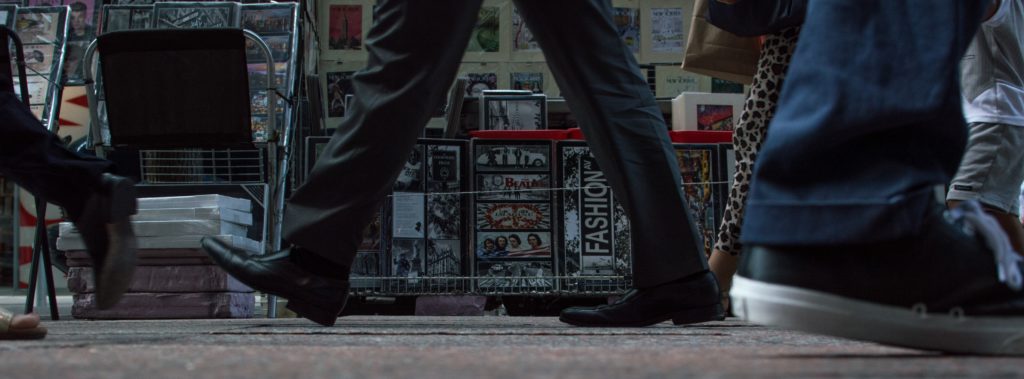I’ve casually followed D.L. Mayfield’s writing for a few years, drawn to her essays on downward mobility and living in neighborhoods predominantly populated by those living in poverty. I couldn’t wait to read her book Assimilate or Go Home: Notes from a Failed Missionary on Rediscovering Faith because these are the sorts of memoirs I need right now.
I was surprised to discover that the book is based on her work with Somali refugees in the Pacific Northwest. I wasn’t aware of her work with refugees before now, but maybe that’s because it wasn’t in my own line of sight until recently. It was one more reason to love this book. (Disclaimer: I received a free electronic copy of the book through the BookLook Bloggers program in exchange for my review.)
Through a series of essays, Mayfield weaves her own faith journey with stories about the refugees she meets in her community. She wanted to be a missionary, and while she was waiting for the perfect time, she reached out to a Somali community and tried everything she could think of to help them and share the Gospel with them.
What happened isn’t exactly what she expected.
This is the story of how I wandered into the upside-down kingdom, of how I was converted and am still being converted every day.”
Instead of leading her new Muslim friends to Jesus, she discovered how very loved she is, without effort. Instead of becoming like the missionary heroes she idolized, she became a friend who learned to listen, receive, and celebrate, even when the outcomes were unclear.
And in the process, she shows the rest of us a glimpse of the kingdom of God, as it is now, not somewhere in the future. I think my favorite line of the book is this one:
A messy, present, incarnational love is the simplest and hardest call of all, the call that all of us were created to follow.”
The stories in this book are not neat and tidy, wrapped up with a happy ending bow. Some of her friends never learn to read English while she’s teaching them. Some of the girls get married young and have babies instead of pursuing education. Some of the neighbors don’t accept her family’s help or presence. That’s just reality.
But there are other stories of small victories. Mayfield writes:
It turns out that I am terrible at converting people the old-fashioned way, with logic and reasoning and concise tracts and fluid, poignant sermons. Instead, I have the much less interesting spiritual gift of showing up and sitting on couches, of doggedly arriving, gamely prepared to help in whatever crisis of the day, and eventually fading into a background player in a story that was turning out to be much bigger than me.”
For me, this book was a huge encouragement as I work with refugees in my own community. It reminds me that the seemingly small, seemingly insignificant acts of showing up, sitting with, and walking next to people are some of the most important.
I’d recommend this book for anyone considering ministry of any kind, especially college students or recent graduates. Granted, most of the things Mayfield learned can’t be taught any other way than through experience, but hers is a reminder that sometimes failing at one thing is the best thing in the end.


